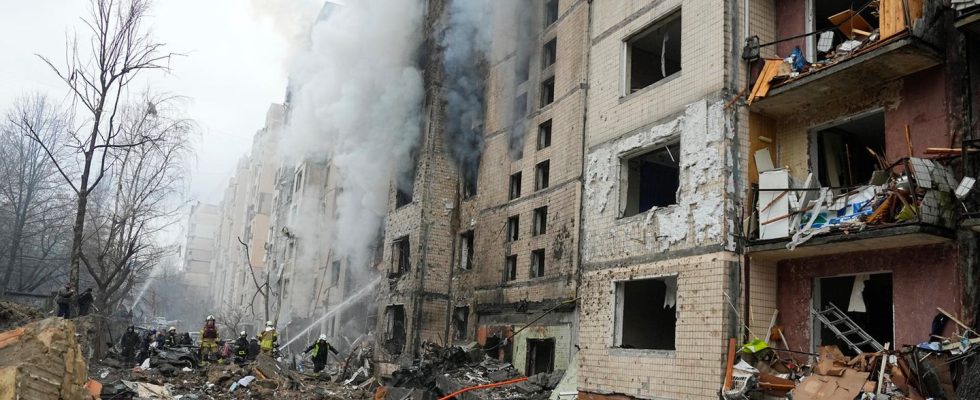New law
EU wants to use frozen funds from Russia to rebuild Ukraine
Smoke rises from a destroyed residential building in Kiev
© Efrem Lukatsky / AP / DPA
Since the invasion of Ukraine, Russia has been subject to several sanctions. The EU has, among other things, frozen Russian financial resources. They could be used for the reconstruction of Ukraine in the future.
According to estimates, a sum in the billions could be incurred every year, since, according to the Commission, more than 200 billion from the Russian Central Bank have been frozen in the EU and the income from the custody of the capital is constantly increasing. The Brussels-based financial institution Euroclear recently announced that it had made around 4.4 billion euros in interest income in 2023 that was related to sanctions on Russia. Euroclear is by far the most important institution in the EU that holds assets of the Russian central bank.
Frozen Russia funds could go to Ukraine
EU officials, meanwhile, emphasize that the project is initially only about revenue that Euroclear is making unscheduled because of EU sanctions against the Russian central bank. For the time being, no expropriation in the true sense is planned.
One reason for this is legal concerns and likely retaliation. Moscow had already warned the EU last year not to confiscate the property of the Russian state or Russian citizens. It would be conceivable, for example, that companies operating in Russia from EU countries would also be forcibly expropriated. In addition, direct use of Russian assets could also lead to other states and investors losing trust in the European financial center and withdrawing assets from the EU.
According to EU information on Monday, the proceeds from the custody of frozen Russian central bank funds could in future be passed on via the EU budget to the planned new financial instrument to support Ukraine. The so-called Ukraine Facility is intended to provide financial aid worth 50 billion euros by the end of 2027.

